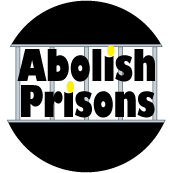He was called
Into the warden’s office
The best cell
In the big house
Next to the judges chamber
Of commerce
Inhumanity
Chain standing in
A stile
Rhyming with orange
The nature of bars and steal
Overtly concrete
Knot no’ing
How to behave
In a cage
Not belonging
As if
Won
Never will
Agin
This is a poem about the inhumanity of prison, the challenge of civil disobedience, and unrepentant freedom even behind bars. Mischievous young spirits may get called into the principal’s office during their school years. Civilly disobedient mature souls may get called into the warden’s office during prison sentences when mere cells cannot hold the full humanity of its inmates.  This poem harkens the reality that even the best cell — the proverbial warden’s office — in a luxurious society segregating it so-called criminal element is still a cell imprisoning all of us from our full humanity. As the great Eugene Debs noted, “While there is a lower class, I am in it, while there is a criminal element, I am of it, and while there is a soul in prison, I am not free.” The cruel reality and sophisticated rationalizations for imprisoning others is incomprehensible to the apprehension of full humanity — “rhyming with orange.” The latter part of this poem poses the conundrum of what a free human should do when put in a cage.
This poem harkens the reality that even the best cell — the proverbial warden’s office — in a luxurious society segregating it so-called criminal element is still a cell imprisoning all of us from our full humanity. As the great Eugene Debs noted, “While there is a lower class, I am in it, while there is a criminal element, I am of it, and while there is a soul in prison, I am not free.” The cruel reality and sophisticated rationalizations for imprisoning others is incomprehensible to the apprehension of full humanity — “rhyming with orange.” The latter part of this poem poses the conundrum of what a free human should do when put in a cage. ![The question is not what am I doing in here?, but what are you doing out there? [prisoner] POLITICAL BUTTON](http://toppun.com/Political/The-question-is-not-what-am-I-doing-in-here-but-what-are-you-doing-out-there-prisoner.gif) The fully free human being confronted with their humanity being held hostage can be likened to the classic paradox of an unstoppable force meeting an immovable object. There are large forces at work when the prison-industrial complex and the school-to-prison pipeline are met by humans with a firm grasp of humanity. In deed, this will illicit much civil disobedience. May prisons be abolished and humanity set free.
The fully free human being confronted with their humanity being held hostage can be likened to the classic paradox of an unstoppable force meeting an immovable object. There are large forces at work when the prison-industrial complex and the school-to-prison pipeline are met by humans with a firm grasp of humanity. In deed, this will illicit much civil disobedience. May prisons be abolished and humanity set free.


